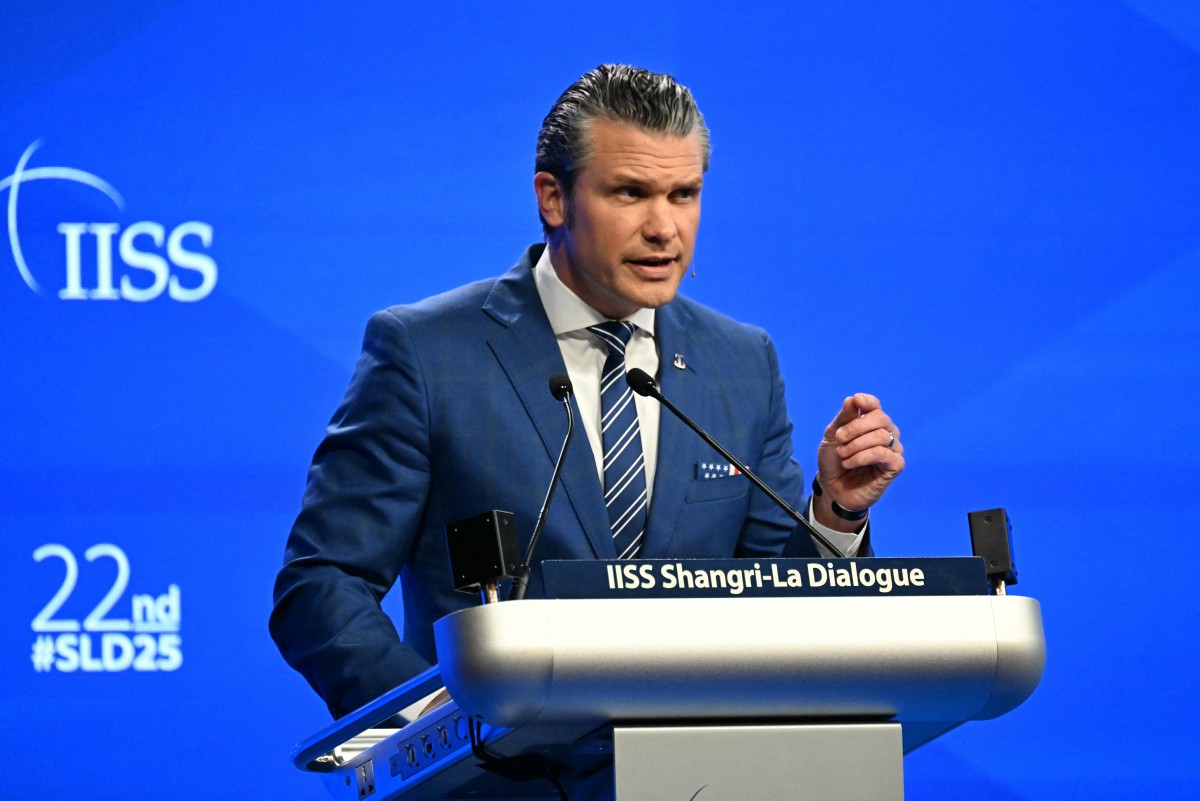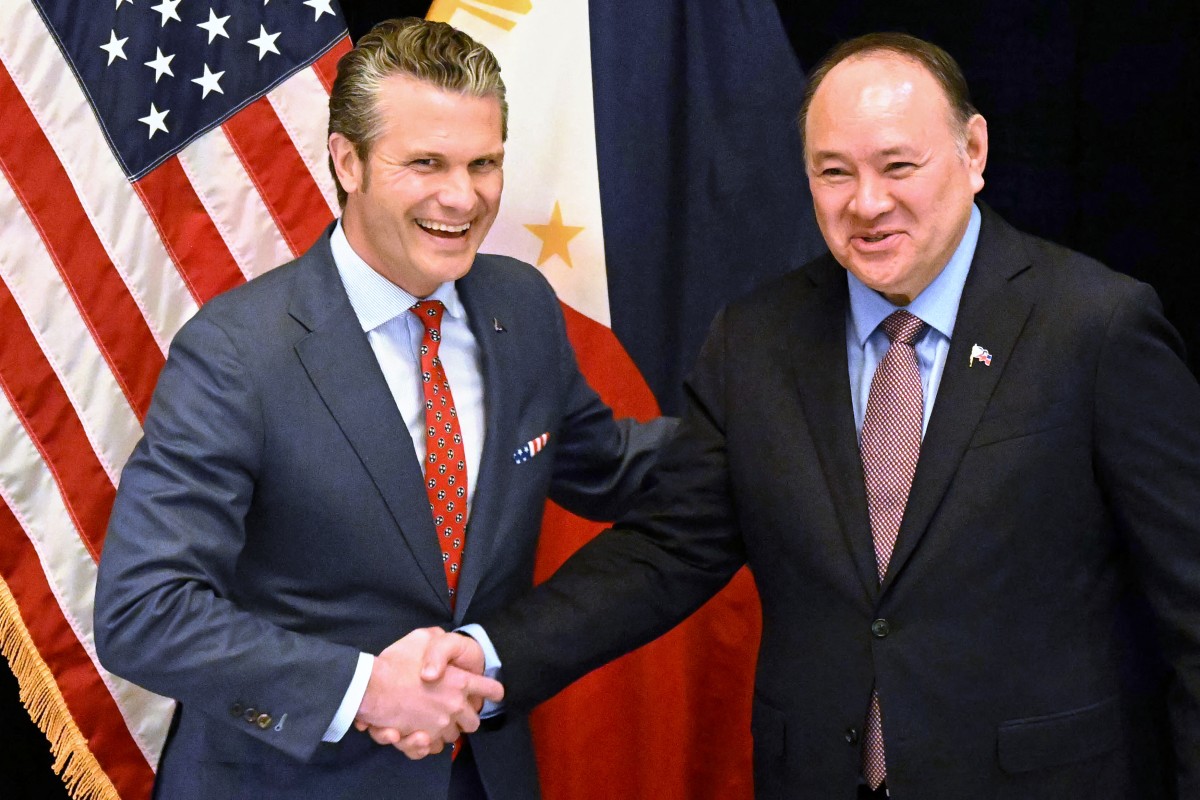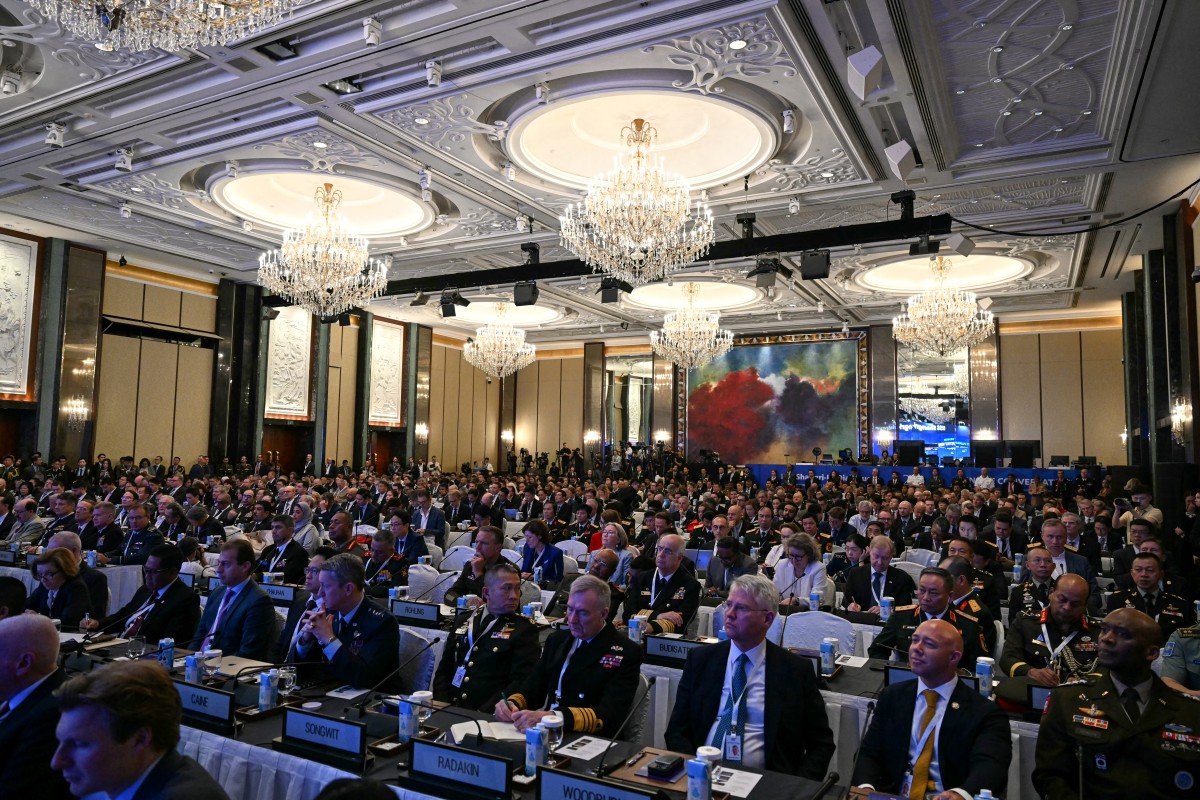
By Agence France-Presse
In his speech on Saturday, May 31, U.S. Secretary of Defense Pete Hegseth warned that China was “credibly preparing” to use military force to upend the balance of power in Asia—remarks that earned a sharp rebuke from Beijing.
The Pentagon Chief was speaking at an annual security forum in Singapore, as the administration of U.S. President Donald Trump sparred with Beijing on trade, technology, and influence over strategic corners of the globe.
China’s foreign ministry blasted the speech, saying it had “lodged solemn representations with the U.S. side” over Hegseth’s comments and taking particular exception to his remarks about Taiwan.
Trump has launched a trade war with China since taking office in January, sought to curb its access to key AI technologies and deepened security ties with allies such as the Philippines, which is engaged in escalating territorial disputes with Beijing.
“The threat China poses is real and it could be imminent,” Hegseth said at the Shangri-La Dialogue, attended by defense officials from around the world.
He added: “Beijing is credibly preparing to potentially use military force to alter the balance of power in the Indo-Pacific”, warning that the Chinese military was building the capabilities to invade Taiwan and “rehearsing for the real deal”.
China has ramped up military pressure on Taiwan and held large-scale exercises around the self-governed democratic island that are often described as preparations for a blockade or invasion.
The United States was “reorienting toward deterring aggression by communist China,” Hegseth said, calling on U.S. allies and partners in Asia to swiftly upgrade their defenses in the face of mounting threats.
In Beijing, the foreign ministry said: “The U.S. should not try to use the Taiwan issue as a bargaining chip to contain China and must not play with fire.”

‘Stirring up trouble’
Hegseth described China’s conduct as a “wake-up call”, accusing Beijing of endangering lives with cyber attacks, harassing its neighbors, and “illegally seizing and militarizing lands” in the disputed South China Sea.
Beijing claims almost the entire waterway, through which more than 60 percent of global maritime trade passes, despite an international ruling that its assertion has no merit.
In recent months, it has clashed repeatedly with the Philippines in these strategic waters, with the flashpoint set to dominate discussions at the Singapore forum, according to U.S. officials.
As Hegseth spoke in Singapore, China’s military announced that its navy and air force were carrying out routine “combat readiness patrols” around the Scarborough Shoal, a chain of reefs and rocks Beijing disputes with the Philippines.
Beijing did not send any top defense ministry officials to the summit, dispatching instead a delegation from the People’s Liberation Army National Defense University led by Rear Admiral Hu Gangfeng.
Without referring to Hegseth by name, Hu said of his speech that “these actions are essentially about stirring up trouble, creating division, inciting confrontation, and destabilizing the Asia-Pacific”.
Hegseth’s comments came after Trump stoked new trade tensions with China, arguing that Beijing had “violated” a deal to de-escalate tariffs as the two sides appeared deadlocked in negotiations.
The world’s two biggest economies had agreed to temporarily lower eye-watering tariffs they had imposed on each other, pausing them for 90 days.

‘Cannot dominate’
Reassuring U.S. allies on Saturday, May 31, Hegseth said the Asia-Pacific region was “America’s priority theater”, pledging to ensure “China cannot dominate us—or our allies and partners.”
He said the United States had stepped up cooperation with allies, including the Philippines and Japan, and reiterated Trump’s vow that “China will not invade (Taiwan) on his watch.”
However, he called on U.S. partners in the region to ramp up spending on their militaries and “quickly upgrade their own defenses”.
“Asian allies should look to countries in Europe for a newfound example,” Hegseth said, citing pledges by NATO members, including Germany, to move towards Trump’s defense spending target of five percent of GDP.
“Deterrence doesn’t come on the cheap,” Hegseth declared.
